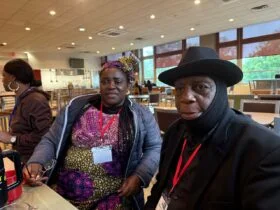According to her, the use of death penalty is irreversible and prone to fatal errors due to flaws in the justice system.
`There is a real risk of executing innocent people given the imperfections in our criminal justice system, including poor investigations and inadequate legal representation,” she said.
Agomoh described the death penalty as inherently cruel, inhuman and degrading, saying that it offers no proven deterrent against crime.
“It does not address the root causes of crime or contribute meaningfully to its prevention. Instead, it imposes additional burdens on inmates and the correctional system,” she said.
The Don stressed that the prolonged incarceration of individuals on death row often amounts to psychological torture, adding that it leaves inmates in prolonged uncertainty and despair while placing a huge strain on prison authorities.
She said that PRAWA supported life imprisonment or long-term sentences with opportunities for rehabilitation, instead of executions, noting that these alternatives offer more constructive solutions and align with global justice reforms.
Agomoh cited a PRAWA-produced documentary on the death penalty which highlighted these concerns and proposed reforms.
She also shared her recent experience attending the 50th Anniversary of the Alternatives to Violence Project (AVP) in Purchase, New York, USA, where she met a man, Otis Johnson, who was wrongly sentenced and spent 42 years in prison.
“Such painful cases emphasise the irreversible nature of wrongful convictions.
“Even in countries with advanced technologies, DNA evidence has later proven the innocence of some already executed individuals. We must not risk such outcomes here in Nigeria,” she said.
Agomoh called for strengthened investigative practices, improved access to fair trials, victim support and offender rehabilitation.
She referenced Rwanda’s use of the Gacaca community-based justice system after the 1994 genocide as an example of how even the gravest crimes could be addressed through restorative rather than retributive justice.
“Rwanda chose truth-telling, accountability and national healing over mass executions. If Rwanda could take that route after such atrocities, we too must explore alternative approaches that preserve human dignity,” she added.
Highlighting human rights concerns, Agomoh pointed out key issues surrounding the death penalty in Nigeria.
This, she said included the risk of wrongful executions due to flawed investigations and legal aid gaps, prolonged delays causing mental and emotional distress to inmates.
“Others are inadequate access to appeals and clemency processes, a disproportionate impact on the poor and marginalised.
“These conditions contradict international instruments Nigeria has signed, such as the International Covenant on Civil and Political Rights (ICCPR) and the African Charter on Human and Peoples’ Rights,” she noted.
To address these challenges, Agomoh recommended the legislative repeal of the death penalty from Nigeria’s criminal laws.
She also suggested the commutation of all existing death sentences to life imprisonment with or without parole, based on offence severity should be considered.
“Also, PRAWA recommends expansion of non-custodial alternatives including community service, parole and probation under the Nigerian Correctional Service Act, 2019.
“Institutionalisation of restorative justice models, including victim-offender mediation, enhanced funding for legal aid, inmate rehabilitation and reintegration programmes and creation of stronger mechanisms for periodic review and commutation of death sentences,” she added.
Agomoh stressed that Nigeria’s de facto moratorium on executions having not carried out state-sanctioned executions in several years offered a timely opportunity to formalise the practice through policy and law.
“Abolishing the death penalty would send a strong message of Nigeria’s commitment to dignity, justice reform and a more effective, humane penal system.
“The country has both a legal and moral obligation to progressively abolish the death penalty and to lead by example in West Africa by embracing justice systems that are more rehabilitative and less punitive,’’ she maintained.



